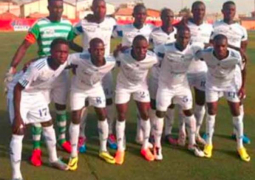As
There was tension at the Pan African Parliament (PAP) yesterday morning 19th May, as members haggled over whether to hold elections first or prioritise a discussion on the institution's protocol.
So serious was the debate that Pan African Parliament's president, Dr Gertrude Mongella, was forced to adjourn the house only an hour after it went into session as debate over the issue stagnated progress on the two-week programme, which started on Monday.
While the draft programme highlighted that parliament would have a presentation and debate on the report on a review of its protocol for three days from Tuesday, a Ugandan parliamentarian, Mary Mugyenyi moved a motion that there be an election of a new bureau, in line with the African Union (AU)'s recommendations
The AU summit in
"The African Heads of States said we must hold an election", Mugyenyi said amid wild applause and cheering. "We only have two weeks here and seeing that we are already in the second day, I appeal that Madam President treats this matter as one in the public's interest.
But the current Pan Africa Parliamentary session only provided for the election of the fourth vice president, a post which became vacant following the defeat of Ghana's Malik Yakubu in that country's election. PAP members should be members of parliament in their respective countries. A speaker from the West African caucus, which was supposed to nominate candidates for the fourth VP's post, said they did not do so in their Monday meeting as they lacked clarity over the elections issue.
Mongella stood her ground, insisting the house adheres to the draft programme, saying it was disorderly for an institution like PAP to stipulate a certain way of doing things and suddenly change simply because somebody suggests they do so.
She said the house should adhere to its rules which say that once a motion is moved, it can take three days before being placed on the order and it is the president's sole discretion to determine whether a motion can be urgently attended to or not.
She advised Mugyenyi to put her motion in writing and submit it to the parliament's clerk for circulation as is expected of her under the rules.
"
"If we do not discuss the protocol it will be seen as if we do not understand it. We have to show an example to the continent that we can run our business according to the rules."
Apparently feeling the matter was of urgency, other parliamentarians continued to haggle, saying the AU's recommendations had more weight than the institution's own rules.
However, after almost three hours adjournment due to this controversy, the parliament resumed with an order that the day's sitting be held in close doors, leaving waiting journalists to pack up and leave.
Meanwhile the
Speaking at the opening of the 11th Ordinary Session of the Pan African Parliament (PAP) in
"A large chunk of our people are in danger of slipping back below the poverty line if we do not collectively strategize to deal with this crisis", said Mahama, who is also a former PAP Member.
"This crisis poses a danger to
Among others, Mahama said, governments must assist farmers to modernize and increase productivity in order to feed
He said the continent can also shield itself against the crisis through generating its own resources for development by being more cost effective in public financial management, avoiding waste in public expenditure and eliminating corruption, while creating a conducive legal and financial environment for the indigenous private sector to grow.
According to him, the era of political dinosaurs who consider their countries as their bonafide property and pillaged the resources for the comfort of themselves and a small political elite is probably over.
"Leaders who have stashed away in foreign banks money equivalent to the entire budget of their countries are becoming a rare breed on the continent. This pleasant wind of change has often been attributed to the so-called new crop of transformational leaders with a vision and determination to lead their people out of poverty into a society of prosperity for all," he asserted.


